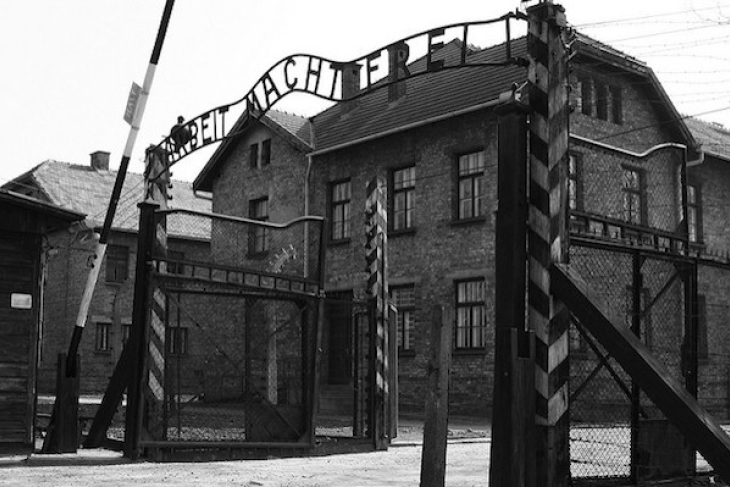My Polish-born wife (whose father was used as forced labor by the Nazis) and I watched in horror. We saw American neo-Nazi’s and their allies from the KKK and other white hate groups recreate a scene out of the Nuremburg Rallies with their tiki torches and slick choreography on the campus of the University of Virginia. My wife asked me, “Do they know nothing about the history they are portraying and praising?”
The history of Nazis and their destruction of Europe was made real to me when I lived and worked in Poland in the early and mid-1990s as a teacher and education reformer. My mentor was the former Solidarity leader and Vice-Minister of Education Wiktor Kulerski. Wiktor’s father was a Polish statesman who served as Secretary of Foreign Affairs, was a member of the National Council of the Polish Republic, and the Secretary of the Presidium and Commission of Foreign Affairs. He served as personal secretary to Stanislaw Mikolajczyk, the Polish Prime Minister in exile in France and then England during the Second World War. Poland suffered under the horrors of Nazism longer than any other country and lost six million citizens; about 22 percent of its prewar population.
Wiktor’s father was the Polish government’s point of contact with all Western leaders, including Churchill and Roosevelt. The Russians expunged him from the list of Poles who could speak with Soviet leaders, as he was a believer in democracy and freedom for all people.
My wife and I worked with Wiktor Kulerski on his manuscript “Shadows of the Past.” The pain and suffering shared in the work brought us to tears, and more than once my wife said, “I don’t want to keep translating. It’s too much.” Because Wiktor’s father was a leading official in the free-Polish government in exile, his family was hunted by the Nazi’s Gestapo throughout the war. The Nazis shot Wladyslaw Kulerski, Wiktor’s grandfather’s cousin, in November 1939. Wladyslaw’s son, Tadeusz Kazimierz Kulerski, managed to slip through the hands of the Germans in 1939, but was killed fighting the Nazis in the 1944 Warsaw Uprising.
Lila, the sister of Wiktor’s father, was captured in the south of Poland in late 1941 and sent to the Ravensbruck concentration camp where she was tattooed with the camp number 10108. Lila’s husband, Wiktor’s uncle Alojzy Majorowicz, was captured with Lila and sent to the Auschwitz concentration camp. He was tattooed with camp number 10554, and was murdered in March 1941. Only a few of Wiktor Kulerski’s family members on his mother’s side survived the war, but several of those were killed later by the Russians.
In order to survive the war, Wiktor’s mother had to change their last name from Kulerski to Kulecki. Wiktor, five years old when the war broke out in 1939, fled with the masses dislocated by the Nazi invasion. The only possession he was allowed to take was his favorite children’s book. When his mother told Wiktor his last name was Kulecki and not Kulerski, he resisted and showed his mom the inscription in his book where it said Kulerski. His mom grabbed the book from him and tore out all the pages where it said Kulerski. “Your name is Kulecki, not Kulerski,” admonished his mother. The Nazis stole Wiktor’s name and identity, and it wasn’t until more than a decade later that he really came to understand who he was.
Wiktor’s uncle would take him to the edge of the woods where his family was hiding to show him the Russian prisoner of war camp where the Nazis starved Russian prisoners of war. Wiktor shared that “when the guards turned away from the prisoners, young children would scurry across the road and throw them bread and cigarettes. One afternoon I saw a guard shoot a little girl in the back because she had given something to a prisoner.” He continued, “Her long blond hair scattered on the road and from under her dress I could see the flow of blood. Bread rolled out of her hand into a small ditch and all the Russians stopped talking and stood up at attention in total silence. The Nazis left her body on the ground and walked away.”
On another day, during a heavy snowfall, Wiktor’s uncle came to get him and took him to see another camp. He gave Wiktor binoculars and told him to look carefully at what was happening in the camp. Wiktor saw a giant sledge filled with naked disfigured bodies being pushed along the road towards the woods. Wiktor’s uncle told the seven-year old boy “you must never forget what you saw here today.” A week later he took Wiktor back to the camp where they came to a high fence. He put the boy on his shoulders. Wiktor looked into the camp, and to his terror he saw lines of pits filled with frozen naked corpses.
The horror and hell of Nazism died in May 1945. The United States used its immense power and the sacrifice of 200,000 citizen-soldiers to help destroy Nazi German and its perverted views of nationalism, race, and power. During his Inaugural Address in 1953, President Eisenhower, the man who led allied forces to victory in Western Europe said, "Whatever America hopes to bring to pass in the world must first come to pass in the heart of America."
America needs to take a close look at its heart and remember what makes us great, while thoroughly discrediting that which would tear us apart. We must never forget the atrocities committed under the name of Nazis, nationalists and the KKK.
Terry Ryan is the Chief Executive Officer of Bluum, and formerly led Fordham’s school reform efforts in Ohio.
The views expressed herein represent the opinions of the author and not necessarily the Thomas B. Fordham Institute.
